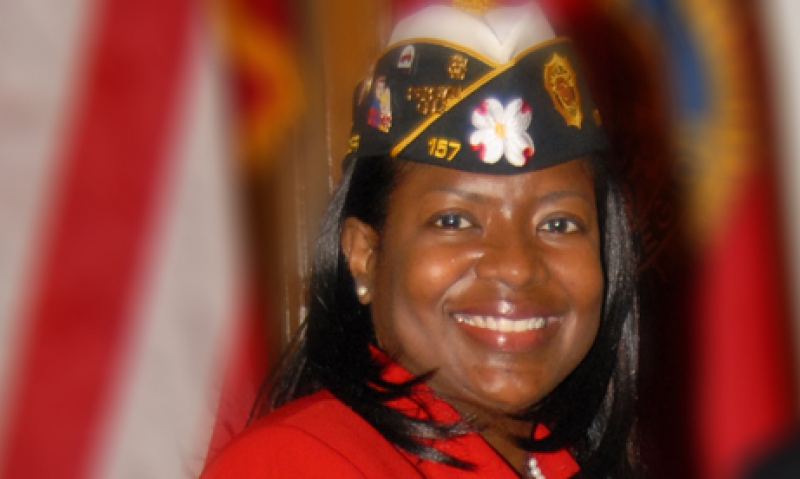
'I'm here to help'
When we talk about the common bond that runs through military service, we're not just referring to the bond among men and women serving side by side, united by a cause. We're talking about the bond that carries on long after they've left the military. It's a bond that says, "I know what you went through, and I am here for you when you need me."
Legionnaire Patricia Harris strongly believes in that bond. A member of Post 157 in Raleigh, N.C., Harris spent 22 years in the U.S. military: 15 on active duty in the Army and another seven in the reserves before leaving the service in 2001. And since leaving the military, Harris has tried to use her own experiences to help others facing problems after reintegrating into the civilian world.
Women Veterans Support Services Inc., founded by Harris in 2007, provides services tailored to the needs of women veterans. It provides information and resources to assist needy female veterans and their families and helps them obtain state, federal and local entitlements that they might not know exist.
But equally important to Harris is that she serves as friendly face who knows what her fellow veterans might be experiencing.
"I was in the military for 22 years, and I am proud that I served. Both my husband and I served, and we are both very happy we did," said Harris, who graduated from Legion College in 2007 and came back this fall to serve as a college facilitator. "We raised a family while we were in the military. We were deployed together during the first Gulf War.
"But I had experiences in the military that were also difficult. I had sexual trauma that I had to deal with. The demons I still see from time to time are the ones I see in the women I'm trying to help now. I'm here to help. I think I understand what they are going through."
Harris founded the WVSS after she'd visited area homeless shelters and came across something she found rather disturbing: Several female veterans with small children had taken residence in the shelters.
"The numbers were staggering," Harris said. "And because of all the (Temporary Financial Assistance) claims I was filing, I was finding a lot of those involved female veterans with small children. I knew that something needed to be done to help these women."
Harris started by meeting with women at area churches. Some came to Post 157 to talk with her. "Pretty much everywhere I went I was talking to someone," she says.
The WVSS helps women deal with crises such as post-traumatic stress disorder, domestic abuse, home eviction, and alcohol or drug abuse. The agency connects the women in trouble with the organization or entity that best serves their needs while ensuring those women are using every possible veterans benefit available.
WVSS staff is made up entirely of veterans or veterans' spouses. "That's what sets us apart from other organizations or agencies out there," Harris said. "They don't have that knowledge of military service. They don't know the experiences associated with it. We do."Most people know me by my cap. They know I served. And they know that it's OK for them to talk to me about my service and about their service."
A 501 (c) 3, non-profit organization, the WVSS currently doesn't have a facility. "We are trying to get one because we need the office space," Harris said. "We're working through the grant process to make that happen."
In the meantime, Harris will continue her work. And the timing is critical. According to the federal government and advocates for the homeless, the rate of homelessness among female homeless vets is increasing in the United States. Women now make up approximately 20 percent of the U.S. Armed Forces, and the number of female veterans enrolled for Department of Veterans Affairs health care is expected to increase by 30 percent in the next five years.There is a need for what Harris is doing. And when there is a need, Legionnaires like Harris always seem to step up to the challenge. It's an example of taking military experience, and the bond that goes with it, and using it to help others.
"I do truly believe that I was called to do this by a higher power," Harris says. "I want to do this. I need to do this."
